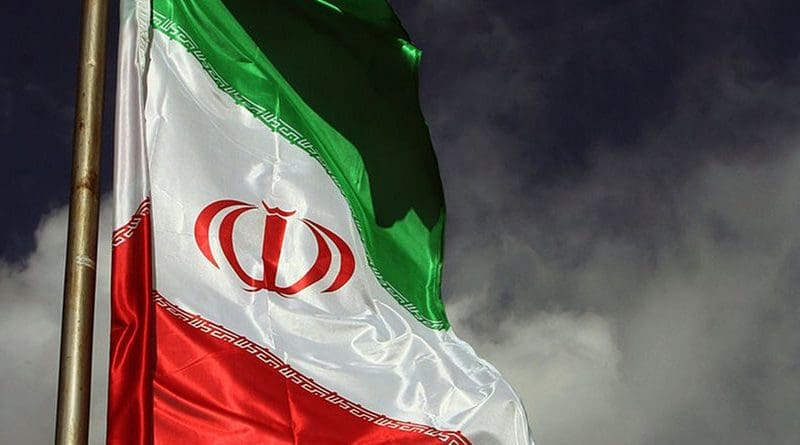Iran Warns Will Halt Nuclear Deal If IAEA Doesn’t Close PMD File
By Iran Review
A senior Iranian official has warned that the Islamic Republic will halt the implementation of a nuclear agreement with the P5+1 if the International Atomic Energy Agency (IAEA) does not fully close the file of the so-called possible military dimensions (PMD) regarding Iran’s nuclear program.
Seyyed Abbas Araqchi said that the IAEA’s Director General Yukiya Amano has decided to release a report on the Iranian nuclear program on December 1, and the Agency’s Board of Governors will review the report and make a final decision in a meeting on December 15.
Araqchi said the report by Amano should result in the closure of the PMD issue.
“In case Yukiya Amano or the Board of Governors presents their report in such a way that it does not meet the stipulated commitments, the Islamic Republic of Iran will also stop the implementation of the JCPOA,” he said, in reference to the Joint Comprehensive Plan of Action, the agreement reached between Iran and the P5+1.
The Iranian nuclear negotiator said he held “constructive and good” talks with the UN nuclear agency chief Yukiya Amano on how to implement a nuclear agreement reached between Iran and six world powers in July.
“This meeting was in line with the roadmap that we had with the agency,” Abbas Araqchi, Iran’s deputy foreign minister for legal and international affairs, said.
He added that based on the roadmap, Iran and the IAEA should hold a wrap-up meeting before the agency gives its final assessment on the so-called possible military dimensions (PMD).
“We think that we are in a good direction,” the Iranian official pointed out.
Araqchi further said that the IAEA would provide its final assessment to its Board of Governors soon.
“The Board would consider this assessment and conclude its consideration of the PMD case…so we can proceed with the other parts of JCPOA,” he added.
Araqchi also said Russia’s decision to lift the ban on export of uranium enrichment hardware to Iran was “actually based on the JCPOA.”
“Based on JCPOA, Iran is allowed to sell its enriched uranium material and to buy natural uranium or yellow cake in return….So, we can have this business with Russia,” he said.
He noted that Iran and Russia have concluded talks on this issue and would sign a deal soon to begin this swap.
“We will sell our enriched uranium to Russia and we will buy yellow cake in return,” Araqchi said.
He said Iran’s enriched uranium can be shipped out after the closure of the PMD question.
“We will wait for a decision by the Board of Governors of the IAEA to close the PMD file so then afterwards the deal can be implemented,” Araqchi added.
Another senior Iranian diplomat said the Islamic Republic is resolved to honor its obligations under the nuclear agreement with the P5+1 group, calling on the opposite side to adopt a similar course of action so that the accord could be successfully implemented.
Iran’s Deputy Foreign Minister for European and American Affairs Majid Takht-e Ravanchi said before the agreement, dubbed the Joint Comprehensive Plan of Action (JCPOA), takes effect, efforts should be focused on closing the file on the so-called possible military dimensions (PMD) of Iran’s nuclear program.
Under the roadmap signed between Tehran and the International Atomic Energy Agency (IAEA) in July, “everything related to PMD will be finished by December 1 … and then everything will be finished by the Board of Governors of the IAEA, so that the whole file related to PMD will be closed,” he said.
The official further noted that after the so-called PMD file is closed, the Islamic Republic will start doing its commitments related to the Arak reactor and the shipping out of enriched uranium stockpile in exchange for yellow cake.
“As far as Iran is concerned, we are more than 100 percent sure that we will stick to whatever we have agreed. We will commit doing whatever we have agreed,” the diplomat said, expressing hope that the same procedure will be followed by the other side in connection with “the lifting of sanctions.”
As Leader of the Islamic Revolution Ayatollah Seyyed Ali Khamenei has stressed, Iran “cannot accept anything less than the lifting of sanctions” adopted by the United Nations Security Council, the European Union or the United States, Takht-e Ravanchi noted.
“So, in the implementation, we want to see that all the sanctions related to economic issues will be lifted as of the implementation day,” he added.
Meanwhile, in a statement delivered to the IAEA Board of Governors, the Non-Aligned Movement once against expressed support for Iran’s nuclear program.
The NAM statement, which was read out by Iran’s envoy to the IAEA, Reza Najafi, hailed the Islamic Republic’s fulfillment of its commitments under the roadmap signed between Iran and the UN nuclear agency. Iran is the current rotating president of the IAEA.
The movement also said that it expects the IAEA Board of Governors to pass a new resolution canceling all previous resolutions over Iran’s nuclear program.

